Search Suggestions
- Gold Loan
- Money Transfer
- Mutual Funds

Personal Loan vs. Business Loan: 7 Differences You Need to Know
In the ever-evolving financial landscape of today, access to capital has become more widespread than ever before. The market is flooded with a multitude of options for both personal and business loans, highlighting the growing ease of obtaining financial resources.
Table of Content
However, choosing between a business loan and a personal loan is far from straightforward, as the decision involves several complexities. To make an informed choice, it is essential to delve into the intricacies of each loan type and gain a comprehensive understanding of the key differences between personal loans and business loans.
What is a Personal Loan?
A personal loan is a versatile financial tool that allows you to borrow money for a wide range of purposes, whether it's covering unforeseen medical expenses, consolidating existing debts, financing home renovation projects, or even funding that long-awaited vacation.
Generally, personal loans are unsecured, meaning you don't need to provide collateral like property or a vehicle to secure the loan. Instead, lenders assess factors such as your creditworthiness and income to determine your eligibility and the applicable interest rates. The popularity of personal loans stems from their quick and straightforward approval and disbursal process, making them an attractive option for many borrowers. Always compare personal loan interest rates from different lenders before making a decision.
What is a Business Loan?
A business loan is a specialized financial instrument designed to support a company's operational needs or facilitate its expansion efforts. Business owners can leverage this type of funding for various purposes, such as capital investments, managing day-to-day operational expenses, and addressing working capital requirements. Many banks offer MSME business loans with attractive interest rates and flexible terms. You can apply for a business loan online to save time and help you focus on running your business.
During the approval process, lenders carefully evaluate the business's financial health, scrutinizing factors such as revenue streams and existing debt obligations. You can manage your company’s financial needs quickly by applying for a business loan online.
Once approved, the loan amount is disbursed in a lump sum, with interest beginning to accrue on the total outstanding balance immediately. The timeline for accessing the funds can vary, but in many cases, the money can be made available as soon as the next business day after approval and verification, providing quick and efficient access to capital.
The 7 Major Differences
The differences between a personal loan and a business loan are listed in the table given below:
|
Point Of Difference |
Personal Loan |
Business Loan |
|
Purpose |
Primarily used for individual needs or personal expenses. This could include purposes such as home renovations, funding a wedding, or going on vacation. The focus is on personal use and comfort. |
Business loan Designed for startup business-related purposes. This could involve capital investment, expansion of operations, or covering business expenses. The goal is to support and grow business activities. |
|
Loan amount |
Generally, personal loans come with lower borrowing limits compared to business loans. The amount available is often constrained by the borrower’s creditworthiness and financial standing. |
Typically allows for larger loan amounts to support significant business needs. Higher limits are usually available, as the loan amount is often based on the business's financial health and requirements. |
|
Collateral |
Usually unsecured, meaning that no collateral is required. The loan is granted based on the borrower’s credit history and ability to repay. |
Often secured by business assets or property. Collateral such as real estate, inventory, or equipment is required to mitigate risk for the lender. |
|
Borrower |
Available to individual borrowers who need funds for personal reasons. This includes anyone who meets the lender’s credit criteria. |
Intended for business owners, entrepreneurs, or entities involved in commercial activities. The borrower must be directly connected to the business seeking funding. |
|
Eligibility criteria |
Eligibility criteria in personal loans is based on the individual's credit history, credit score, and overall financial stability. Personal creditworthiness is a key factor. |
Eligibility is determined by the business's financial statements, creditworthiness, and operational stability. The financial health and performance of the business are critical factors. |
|
Repayment |
Repayment is typically structured in monthly instalments. The schedule is straightforward, with fixed amounts due regularly. |
Repayment methods can vary, including options for monthly or quarterly payments. Flexibility may be offered based on the business’s cash flow and financial needs. |
|
Documentation |
Requires documentation related to personal finance, such as income statements, tax returns, and identification proof. |
Necessitates financial documentation from the business, including financial statements, tax returns, and details of business operations. |
Conclusion
While both personal and business loans can be utilized for business-related expenses, selecting the right type depends on your specific needs—both professionally and personally. It’s important to evaluate your eligibility for each loan option and compare repayment terms before submitting a full application. By doing so, you can ensure that you choose the loan that best aligns with your financial situation and long-term goals.
- Instant Personal Loan
- EMI Calculator
- Document Required
- Track Personal Loan
- Interest Rate
- Procedure and Eligibility
CATEGORIES
OUR SERVICES
-

Credit Score
-

Gold Loan
-

Personal Loan
-

Cibil Score
-

Vehicle Loan
-

Small Business Loan
-

Money Transfer
-

Insurance
-

Mutual Funds
-

SME Loan
-

Corporate Loan
-

NCD
-

PAN Card
-

NPS
-

Custom Offers
-

Digital & Cashless
-

Milligram Rewards
-

Bank Mapping
-

Housing Finance
-

#Big Business Loan
-

#Gold Loan Mela
-

#Kholiye Khushiyon Ki Tijori
-

#Gold Loan At Home
-

#Sunherisoch
RECENT POSTS

Understanding KDM Gold and Why it’s Banned
Know More
How BNPL Affects Your Credit Score
Know More
What is a Cheque and its Different Types in India?
Know More
Benefits of Paying Your EMIs on Time: Why Timely Payments Matter
Know More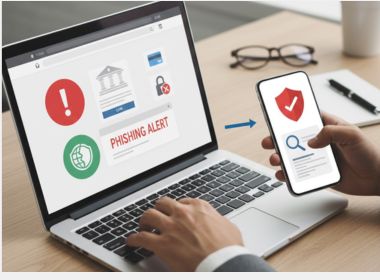
A Complete Guide to Report Online Fraud
Know More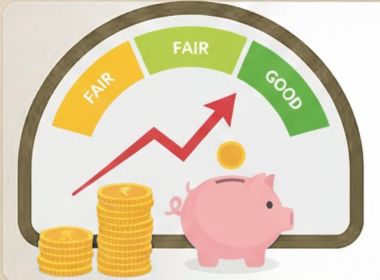
How does a Personal Loan Affect your Credit Score?
Know More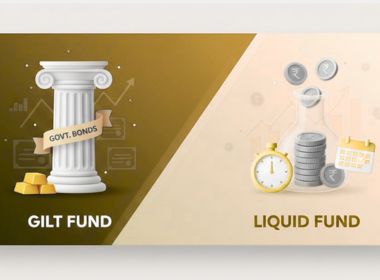
Gilt Fund vs Liquid Fund: Full Form, Meaning & SIP Guide
Know More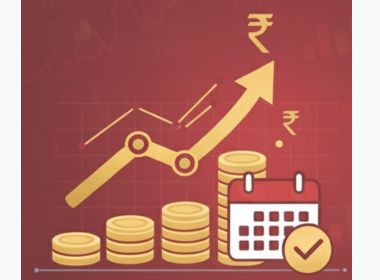
XIRR in Mutual Funds & SIP: Full Form, Meaning, Formula and How to Calculate
Know More
7 Key Factors to Consider Before Taking an SME Loan
Know More
Difference Between Black Gold and Gold: Everything You Need to Know
Know MoreFIN SHORTS

What Are Co-Pay and Deductibles in Insurance Policies?
Know More
Should You Take a Loan Against Your Mutual Fund or SIP?
Know More
Top 5 Best Mid-Cap Mutual Funds to Watch in 2026
Know More
Are Personal Loans Right for Retirees? Key Points to Consider
Know More
What Happens to a Personal Loan After the Borrower Dies?
Know More
Best Loan Choices for Credit Scores of 580 and Below
Know More
7 Reasons Why a Gold Loan Is the Best Option for Small Businesses
Know More
10 Reasons Why People in India Prefer Physical Gold
Know More
Real Estate vs Gold: Which Is a Better Investment in India?
Know More
10 Common Mistakes That Make Investors Lose Money in Mutual Funds
Know More
10 Reasons Why Gold Has So Much Appeal in Uncertain Times
Know More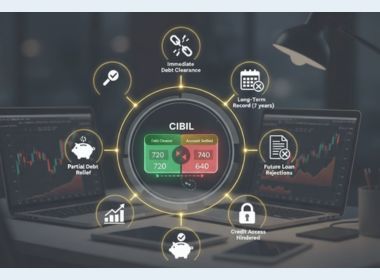
7 Ways Settling Debt Can Impact Your CIBIL Score
Know More- South +91 99469 01212
- North 1800 313 1212


